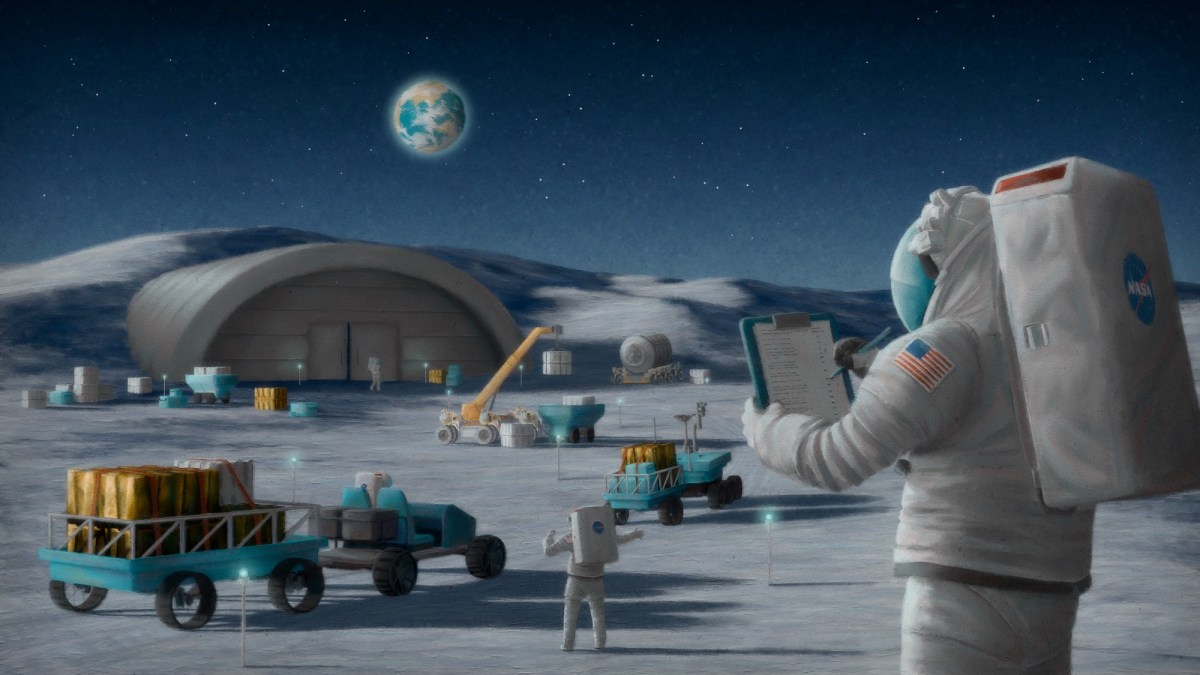WASHINGTON — NASA issued study contracts to examine logistical issues for a long-term human presence on the moon despite uncertainty that the current administration will continue to pursue the Artemis lunar exploration campaign.NASA announced Jan. 23 that it selected nine companies for contracts with a combined value of $24 million to study logistics needed for later human missions on the moon, when the agency anticipates larger crews spending more time on the lunar surface.The nine companies selected for awards are Blue Origin, Intuitive Machines, Leidos, Lockheed Martin, MDA Space, Moonprint, Pratt Miller Defense, Sierra Space and Special Aerospace Services. NASA said the studies involve topics such as logistics carriers and handling, surface cargo mobility, and trash management.“These contract awards are the catalyst for developing critical capabilities for the Artemis missions and the everyday needs of astronauts for long-term exploration on the lunar surface,” Nujoud Merancy, deputy associate administrator for the Strategy and Architecture Office in the agency’s exploration directorate, said in a statement.NASA made the awards using its Next Space Technologies for Exploration Partnerships-2 (NextSTEP-2) broad agency announcement, a contract vehicle used for a wide range of efforts, ranging from the Human Landing System crewed landers for Artemis to support for commercial space stations.NASA said these new studies, formally known as NextSTEP-2 Appendix R, were initiated to address gaps identified in the development of the agency’s Moon to Mars Architecture. The overall architecture was missing an integrated surface logistics architecture and uncrewed surface mobility systems for lunar surface assets, NASA stated in the NextSTEP solicitation.The solicitation set a limit of $1 million for each of seven study topics, and an overall bid limit of $4 million if companies submitted proposals for multiple topics. The studies are intended from be completed in about a year.“This is an important step to a sustainable return to the Moon that, along with our commercial partners, will lead to innovation and expand our knowledge for future lunar missions, looking toward Mars,” Merancy said in the statement.The studies, though, come amid continued speculation that the new Trump administration may significantly revamp or even cancel Artemis so that NASA can accelerate efforts to send humans to Mars.President Trump mentioned that goal briefly in his inaugural address Jan. 20. “We will pursue our manifest destiny into the stars, launching American astronauts to plant the Stars and Stripes on the planet Mars,” he said, but did not give a schedule for doing so. A human landing on Mars during his administration is effectively impossible, given the technical challenges involved in such missions and launch opportunities that open only approximately every two years.Elon Musk, chief executive of SpaceX and a close adviser to Trump, has been a fervid proponent of human Mars missions and, increasingly, a critic of Artemis. “Regarding space, the Artemis architecture is extremely inefficient, as it is a jobs-maximizing program, not a results-maximizing program,” he posted on social media Dec. 25. “Something entirely new is needed.”Concerns about Artemis are reportedly part of the reason why the Trump administration chose Janet Petro, director of the Kennedy Space Center, as acting administrator rather than Jim Free, the agency’s associate administrator and highest-ranking civil servant.Industry sources stated that while associate administrators have served as acting administrators in recent presidential transitions, the incoming Trump administration disliked comments Free had made supporting Artemis. That included a speech before the election where he called on “consistency in purpose” in NASA’s human spaceflight program, arguing that while the agency could improve Artemis, “we need to keep this destination from a human spaceflight perspective.”
By Tyler Mitchell
Tyler is a renowned journalist with years of experience covering a wide range of topics including politics, entertainment, and technology. His insightful analysis and compelling storytelling have made him a trusted source for breaking news and expert commentary.
